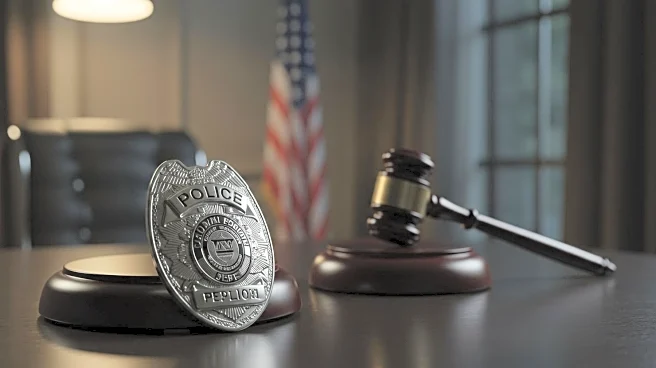What's Happening?
U.S. Attorney General Pam Bondi has appointed Terry Cole, the head of the Drug Enforcement Administration, as the 'emergency police commissioner' for Washington's Metropolitan Police Department. This directive grants Cole the authority to assume all powers and duties of the District of Columbia Chief of Police, requiring existing MPD leadership to seek approval from Cole before issuing directives. This move follows President Trump's deployment of National Guard troops to Washington, citing a crime emergency despite statistics indicating a decline in violent crime. Trump has expressed intentions to seek long-term federal control over Washington's police force, challenging the city's Democratic leadership.
Why It's Important?
The appointment of Terry Cole as emergency police commissioner represents a significant federal intervention in local law enforcement, highlighting tensions between the Trump administration and Democratic-led cities. This action could set a precedent for increased federal oversight in other cities, potentially altering the balance of power between federal and local authorities. The move has sparked debate over the accuracy of crime statistics and the appropriate level of federal involvement in local governance, with implications for public policy and civil liberties.
What's Next?
The situation may lead to legal challenges from Washington's local government, as Mayor Muriel Bowser has already contested the administration's claims about rising crime rates. The federal takeover of the police department could face scrutiny from civil rights groups and lawmakers concerned about the expansion of presidential powers. The outcome of this intervention could influence future federal actions in other cities and impact the political landscape ahead of upcoming elections.
Beyond the Headlines
This development raises questions about the ethical and legal implications of federal control over local police forces. It may prompt discussions on the limits of presidential authority and the role of federal agencies in local matters. The move could also affect public trust in law enforcement and government institutions, as well as the relationship between federal and local entities.









